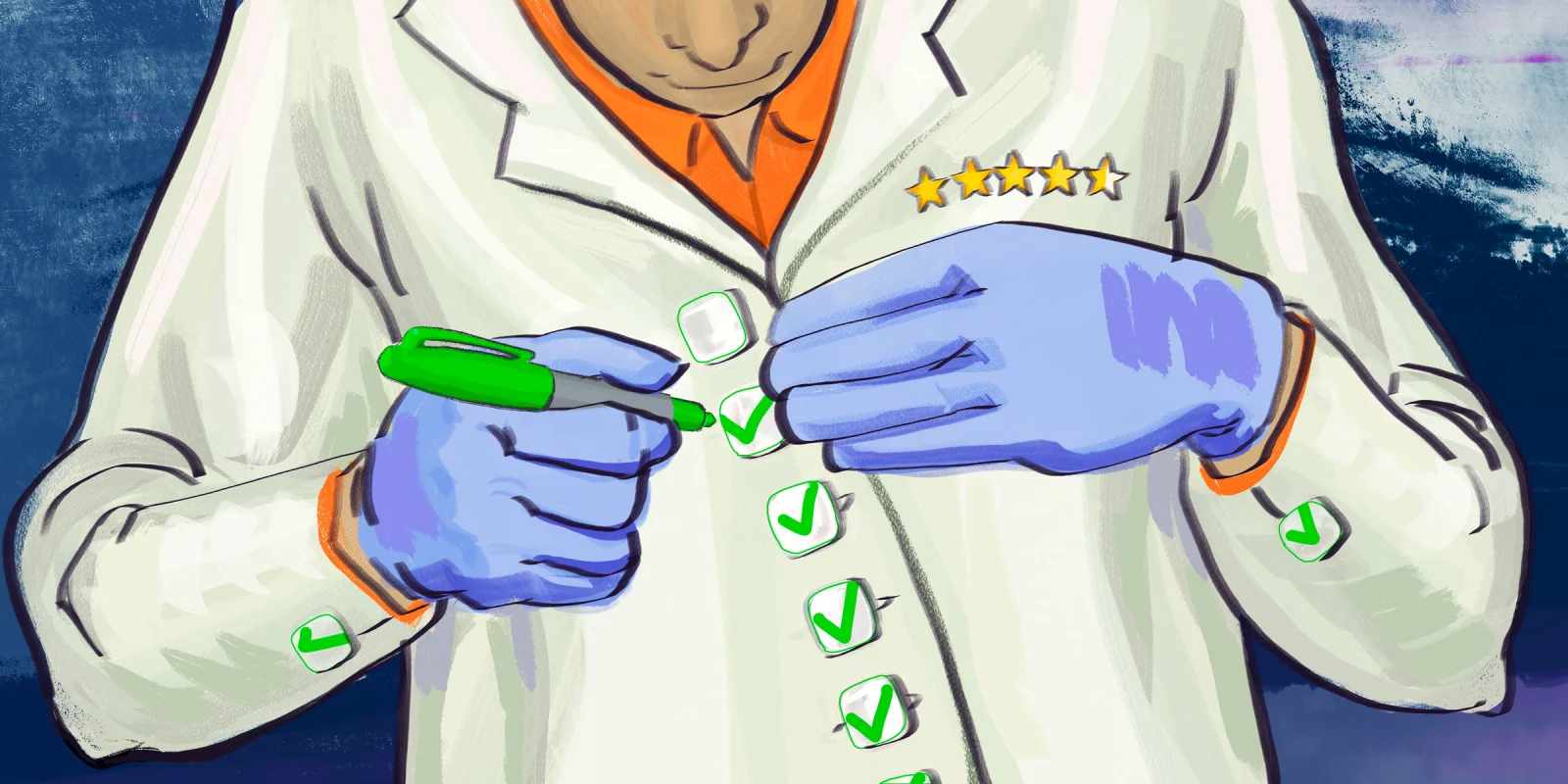You probably didn’t become a physician without a healthy dose of perfectionism. From preschool through residency and beyond, many of us have survived, thrived, and been rewarded for our perfectionist tendencies. And when you didn’t hit the mark? You may have felt the sting of your parents’ and teachers’ disappointment. Eventually, you may have learned to define yourself by your perfectionism.
Those on the outside may mean well when they assure us that perfectionism is an impossible goal, but the truth is that perfectionism is a prized attribute in our profession. Our patients appreciate it as well. After all, who wants a doctor who is willing to just scrape by?
Interestingly, perfectionism seems to be on the rise, especially among people born in the 1980s and later. That may bode well for conscientious patient care. But there is a dark side to perfectionism that can hold you back from living your life to the fullest.
Perfectionists often suffer from impostor syndrome, fearing that they are not good enough and will eventually be exposed for all to see. And in fearing that you are not going to meet the high standards you set for yourself, you may subconsciously find ways to procrastinate as a means of avoiding that discomfort.
Another factor holding perfectionist physicians back is, perhaps counter-intuitively, a fear of success. This often arises from fear of change and the unknown. The end result may be the same: procrastination and a failure to act in your own best interests.
Fear of failing to meet your highest standards or of simply not being very good at something can prevent you from experiencing the satisfaction of completing a dreaded task, the joy of learning something new, and the openness of the beginner’s mind. That means that when you procrastinate, you may be holding yourself back from opportunities that could create more possibilities and joy in your life — such as learning new procedural skills, being part of a paradigm-shifting committee, or working on a medical blog.
If you’re having a hard time getting started on a task, big or small, don’t beat yourself up. Chastising yourself for feeling overwhelmed and disorganized may only make the procrastination problem worse by confirming your fear of inadequacy and filling you with anxiety. And thus, the problem comes full circle. To break the cycle of fear, frustration, and despair, it’s important to recognize that procrastination does not mean that you are incapable or irresponsible. And let’s establish right now that as a busy and caring physician, you are certainly not lazy.
So how to keep your perfectionist persona in its own lane, focusing on patient care, while working through the non-clinical commitments, stacks of insurance paperwork, and home projects that keep demanding your energy?
Let’s be honest. There are a ridiculous number of things that weigh on your time as a physician. Sometimes good and done is good enough. And sometimes, when it’s appropriate, you just have to say no.
Let’s start with getting stuff done. First, if no one’s life or livelihood depends on it being perfect, allow yourself a little grace. Realize that sometimes perfection is not worth the effort and may not even be possible. Below, I share tips for how to tackle a handful of competing priorities in a timely manner:
1) Medical documentation
We’ll address the elephant in the room first: your medical charts. As charts start to pile up and paperwork is left unfinished, your anxiety levels may rise, and you may find yourself in a spiral of regret and self-flagellation. If you have a system that works for you, kudos and keep it up. But for the many physicians for whom the EHR is a major source of stress and procrastination anxiety, it’s important to get a handle on this beast as early as possible in your medical career. Just get the charts done, either immediately during or after the visit (my preference) or at the end of the session. Yes, the notes need to be succinct, truthful, and useful. And personally, I always found that including a brief personal observation reminded me of the issues that were meaningful to my patients when we met the next time. But punctuation, spelling, even virtual voice transcription errors that don’t change the meaning of the sentence can often be safely overlooked. Yes, the ready availability of records to our patients may mean that these errors are highlighted, but this may be one situation where perfectionism in patient care can be counterproductive. You’ve got to get the notes done in short order, and they need to be complete, and you only have so much time in the day.
I also recommend that you use “smart phrases” — text blocks that you use frequently that can be automated through your EHR system — as much as possible (only if the documentation is accurate, of course). And to avoid a horrendous backlog, I urge you to create a block of time to get patient communication, testing review, insurance, and other paperwork done. Do it consistently every day (perhaps using the Pomodoro method), and even though you may not finish everything all at once, you’ll complete it in a timely manner. Once you start seeing the results of this effort, your sense of self-efficacy will increase.
2) Inter-personal responsibilities
When it comes to committees and other professional commitments, take a good long look at what you’ve signed up for. Be sure that the work is meaningful and actionable for you. If so, consider working with an “accountability partner” who is on the same committee. You can keep each other on task with quick check-ins by text. Simply committing to a plan can often get you halfway there.
3) Personal endeavors
Having a life outside of the clinic or hospital helps you to decompress, stretches your brain, and keeps you connected to the outside world. When it comes to family and close friends, your time and attention matter. And of course regular exercise is critical for just about every aspect of your health. Unlike taking care of patients, the bar is fairly low. No one is depending on you to be the best. Just being present and engaged is usually enough. For your home projects, exercise, and other extracurriculars, consider using a Bullet Journal or other daily log. I personally prefer to use paper rather than apps, since it’s easy for to-do lists to disappear into the ether of the internet, never to be seen again. Just commit to five to 10 minutes on a task on a regular basis, or set up an introductory lesson for something that interests you. You’ll be surprised how much you can do, and it may motivate you to keep going. If you’re not perfect, all the better. You’ll learn and grow and maybe even find new life passions.
Developing self-compassion is an important step toward recovery. But being kind to yourself doesn’t mean you can ignore the pressing problems that procrastination has created. If the load feels overwhelming, realize that procrastination-born perfectionism can lead to important mental health conditions including depression, anxiety, and eating disorders. And when you put off completing charts or making calls, procrastinating can also hurt your patients and your practice. In the worst cases, medical care may be delayed and important notifications missed, with possibly serious ramifications for the patients who depend on you. And so, get help if you need it. If you are questioning your efforts, your direction, or experiencing burnout, consider meeting with a physician coach.
Remember: your perfectionism is one of your superpowers as a physician. You have high standards, you solve tough problems, and you keep people safe. Leverage this, cherish it, but don’t let it take you down the road of procrastination.
What strategies do you employ when perfectionism threatens to get the best of you? Share in the comments below!
Dr. Sarah Samaan is a cardiologist who retired in 2022 after nearly 30 years of practice. She is a physician coach, a medical writer, a registered yoga teacher, and is currently enrolled in a university BFA program in Photographic Arts. She competes in the equestrian sport of Dressage. Dr. Samaan blogs at MindfulPhysicianCoaching.com and tweets @heartsmarter. She is a 2022–2023 Doximity Op-Med Fellow.
Illustration by Jennifer Bogartz







